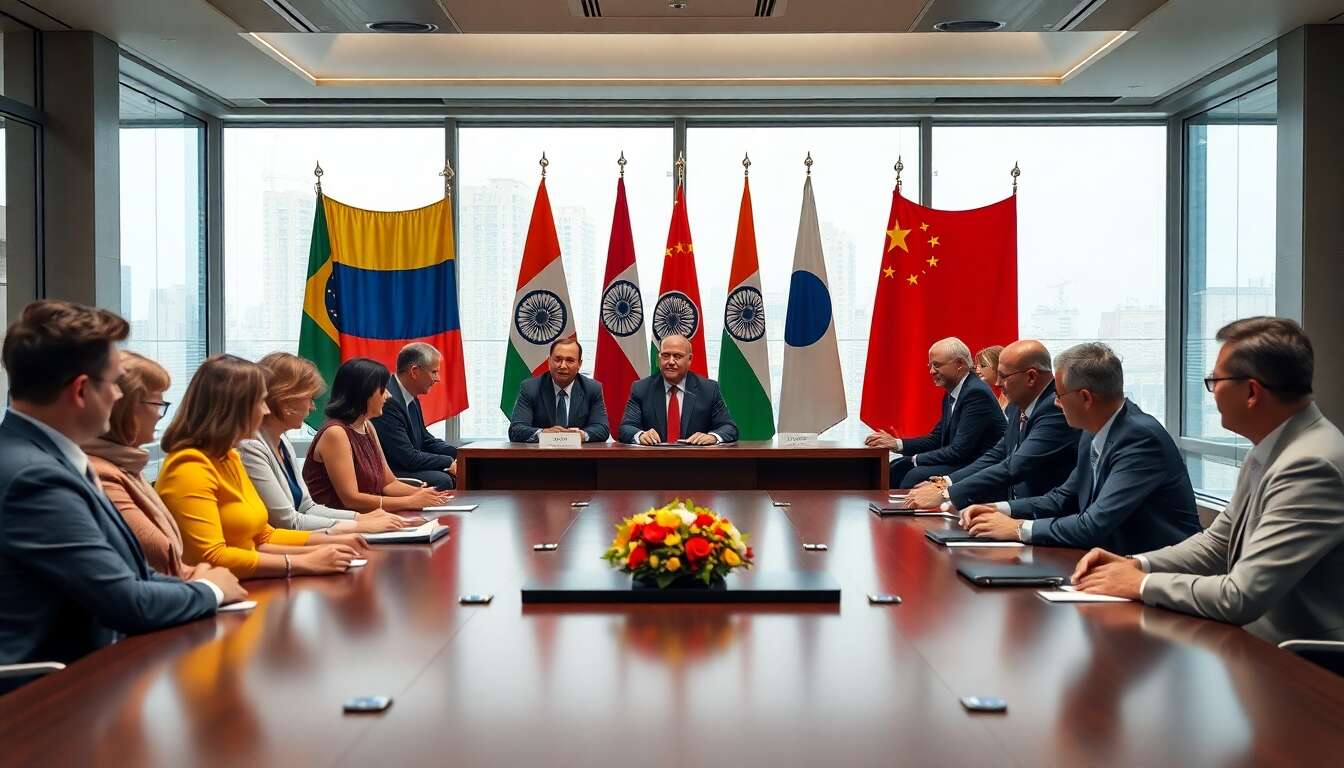The BRICS group, consisting of Brazil, Russia, India, China, and South Africa, has positioned itself as a formidable entity in the global economy. This coalition, which represents a substantial portion of the world’s population and emerging markets, strives to counterbalance the dominance of Western powers, particularly the United States.
Understanding the role of BRICS countries in the global economy
The significance of BRICS
The BRICS countries collectively account for a significant share of global GDP. With vast natural resources, large populations, and growing industrial bases, these nations play a crucial role in shaping economic policies worldwide. Their influence is not just economic but also political, as they advocate for a more equitable global order.
BRICS as a counterbalance
BRICS seeks to provide an alternative to Western-led economic systems. By fostering cooperation among its members, this group aims to challenge the hegemony of institutions like the International Monetary Fund (IMF) and the World Bank, promoting a more multipolar world economy.
The evolving dynamics within BRICS are paving the way for significant economic developments. This leads us to the exploration of the BRICS currency initiative.
The evolution and challenges of the BRICS currency

The concept of a common currency
A central topic of discussion within BRICS is the establishment of a common currency. This initiative aims to facilitate trade among member countries while reducing reliance on the US dollar. The idea is that a shared currency could enhance economic stability and strengthen intra-BRICS trade relations.
Challenges in implementation
Despite the potential benefits, the introduction of a BRICS currency faces several hurdles:
- Diverse economic policies among member countries
- Varying levels of economic development
- Political disagreements
Overcoming these challenges requires concerted efforts and compromises among BRICS nations.
The discussions around a common currency are closely linked to the broader strategy of dedollarization.
Dedollarization: a strategic shift for BRICS

Motivations behind dedollarization
The BRICS countries are increasingly turning to dedollarization as a means to gain economic independence. By reducing their reliance on the US dollar, they aim to shield their economies from external shocks and exchange rate volatility.
Steps towards dedollarization
Several measures are being considered to achieve dedollarization:
- Promoting bilateral trade agreements in local currencies
- Increasing currency swap arrangements among BRICS members
- Developing alternative payment systems
These efforts highlight the strategic intent of BRICS to reshape the global financial landscape.
As BRICS pursues dedollarization, it is also expanding its membership, which has significant implications for the global economy.
Economic consequences of BRICS expansion

New members and their impact
The recent inclusion of six new countries—Saudi Arabia, Argentina, Egypt, the United Arab Emirates, Ethiopia, and Iran—marks a pivotal moment for BRICS. This expansion enhances the group’s geopolitical influence and diversifies its economic base.
Implications for global trade
The entry of new members is expected to:
- Boost intra-BRICS trade
- Provide new investment opportunities
- Strengthen political alliances
This expanded coalition will likely play a more prominent role in global trade negotiations and economic policymaking.
The growth of BRICS presents unique opportunities for Africa, particularly through the New Development Bank (NDB).
Impact and opportunities for Africa with the BRICS NBD
The role of the NDB
Established by BRICS, the New Development Bank aims to finance infrastructure and sustainable development projects in member countries. For Africa, this presents a valuable source of funding independent of traditional Western financial institutions.
Opportunities for African nations
The NDB offers African countries:
- Access to alternative financing
- Support for large-scale infrastructure projects
- Opportunities for economic growth and development
The bank’s focus on sustainable development aligns with Africa’s long-term economic goals.
As the BRICS group continues to evolve, its emphasis on local currency financing signifies a broader shift in the global South.
Local currency financing for the global South
Reducing dependency on foreign currencies
By promoting local currency financing, BRICS aims to reduce the dependency of developing countries on foreign currencies. This approach helps mitigate risks associated with currency fluctuations and enhances economic stability.
Benefits for the global South
Local currency financing supports:
- Economic sovereignty
- Reduced transaction costs
- Strengthened regional trade
This strategy empowers countries in the global South to pursue more independent economic policies.
The initiatives and transformations within BRICS are reshaping the global economic landscape. The group’s growing influence and strategic shifts are paving the way for a more balanced and multipolar world economy, emphasizing cooperation and shared growth among emerging markets.



